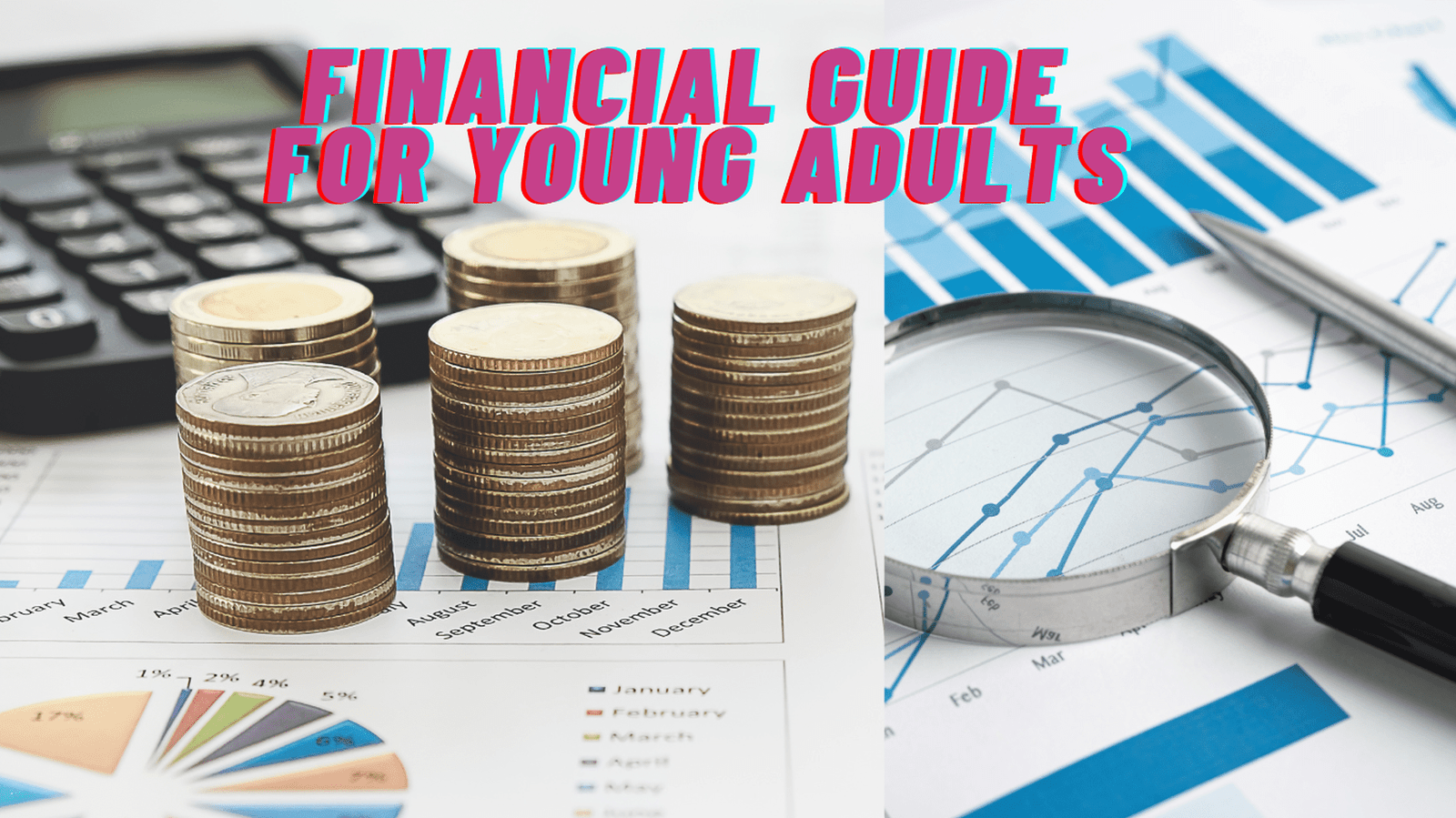The Best Financial Guide For Young Adults :
- The personal finances can be tough for young adults. Bad habits are common when you combine limited experience with rising debt and the sophistication of some financial products.
- But fear not we’ve compiled this one-stop guide to arm you with the tools to step into the driver’s seat of your finances and establish a successful future.
The Importance of Financial Literacy :
- Acquiring strong financial skills while you’re young can help avoid mistakes that plague many of us later.
- With a fundamental understanding, you’ll be able to take on debt, saving when appropriate, and budgeting for life’s big events.
- Explore the path to financial security and freedom.
- financial Guide for young adults or young couples.
Creating and Following a Budget : (Financial Guide For Young Adults)
- The foundation of financial health is budgeting.

Why is that important :
- Without a budget, spending can easily get out of control and you will have little room for savings or future goals.
How to do it:
- To further understanding your spending habits, track your expenses for one month.
- Get the Budget Breakdown Divide your income into categories, savings, essentials (rent, bills, food) and discretionary spending.
- The 50/30/20 Rule is one approach 50% of income on needs, 30% on wants, 20% on savings.
Real-life example:
- Alex, 25, began tracking his monthly spending and realized he was spending too much dining out.
- Simply by using cash for his discretionary spending, Alex was able to decrease his dining expenses by 30% and put that money back into savings.
Pro Tip:
- You can use apps such as YNAB (You Need a Budget) or Mint to automate and simplify the process.
The Importance of Saving and Investing Explained : (Financial Guide For Young Adults)
- Saving focuses on safety nets; investing focuses on growth.
Why is that important :
- Savings provide financial security in challenging times.
- Investing grows your money over time through the magic of compound interest.
How to do it:
- For emergencies, budget three to six months’ worth of living expenses.
- If you can, invest small amounts regularly in low-cost index funds or ETFs consistent investing.
Real-life example:
- Sarah, 27, began investing £100 a month in an index fund. With compound interest, her balance was now 20% higher after five years, helping her achieve her goals.
Pro Tip:
- Automate your savings. Direct deposits should be arranged into savings accounts or investment platforms.
Debt Management Habits and Avoiding Over-borrowing : (Financial Guide For Young Adults)
- Make sure this is not too scary debt needs to be managed properly.

Why is that important :
- Debt gone wrong can prevent you from such goals as buying a house or saving for retirement.
How to do it:
- Prioritize high-interest debt, such as credit cards, while paying the minimum amount on debts with lower rates.
- Don’t take on more debt unless you absolutely need to (a mortgage, school).
Real-life example:
- John, 28, the one who didn’t borrow, navigated his student loans and other debt.
- He paid off high-interest debt first and was debt-free within two years.
Pro Tip:
- Maximize savings by using the Debt Avalanche Method, which involves paying off the debts with the highest interest rates first.
How to Make Good Spending Choices : (Financial Guide For Young Adults)
- To regain control of your finances, distinguish needs from wants.
Why is that important :
- Spending without purpose, whether driven by fears of missing out (FOMO) or spur-of-the-moment buys, eats away at your capacity to save or invest.
How to do it:
- Postpone non-essential purchases for at least 24 hours, and for larger expenses 72 hours.
- Cancel services you rarely use and keep track of recurring expenses such as subscriptions.
Real-life example:
- Maya, 23, held back on impulse purchases by giving herself 24 hours to think about whether to buy such items.
- Her savings grew over the years A few years later
Pro Tip:
- Buy smarter, explore for deals or cashback offers on your everyday items to lessen spending.
How to Raise and Preserve a High Credit Score : (Financial Guide For Young Adults)
- If you have good credit, your score opens up doors for you.

Why is that important :
- A healthy credit score means lower interest rates on loans and greater approval rates for credit cards and mortgages.
How to do it:
- Set up automatic payments for necessities and pay your bills on schedule.
- Make sure the percentage of available credit that you use (called credit utilization) is less than 30%.
- Do go through your credit report and check for errors.
Real-life example:
- Jamie, 26, got his credit score close to perfect figure by keeping a utilization of less than 30% of credit limit and paying bills on time.
- Within a year, his score grew by 50 points, opening up access to better financial products.
Pro Tip:
- Free tools such as Experience can allow you to monitor your credit score.
Planning for Major Life Events and Retirement : (Financial Guide For Young Adults)
- It’s never too early to start planning for the future.
Why is that important :
- Big-ticket purchases such as a good house or retiring in comfort take years of preparation.
How to do it:
- If you have an employer pension or retirement, contribute to it as early as you can.
- Study how large purchases (house or car) align with your long-term financial objectives.
Real-life example:
- Emily, 29, began saving for her first home soon after her wedding.
- Having separate savings account per financial milestone kept her organized and focused.
Pro Tip:
- Consider Lifetime ISAs (LISAs) for saving for a home or for retirement, these come with a 25% government bonus.
Getting Into Details of Financial Products and Services : (Financial Guide For Young Adults)
- Yes, whether high-yield savings accounts or credit cards, understanding your financial tools is essential.

Why is that important :
- Utilizing appropriate products optimizes financial gain and reduces fees or exposure.
How to do it:
- Example: Do some research on the benefits and downsides of various account types (current accounts vs savings accounts)
- Use opportunities like cashback credit cards, or rewards programs.
Real-life example:
- Michael, 26, transferred his emergency fund into a high-yield savings account and saw his interest amassed substantially.
Pro Tip:
- Always read the fine print because unstated costs can reduce financial gains.
Tax Management on Personal Finance : (Financial Guide For Young Adults)
- Stay on top of taxes so they won’t blindside you.
Why is that important :
- A well-managed tax also decreases stress and helps comply with the government.
How to do it:
- Know what taxes mean for your income, investments, and side hustles.
- Make quarterly payments or modify tax with holdings if you have several sources of income.
Real-life example:
- Ava, 30, spoke with a tax adviser to help her maximize her filings.
- She also optimized her take home pay through tax deductions and efficient management.
Pro Tip:
- Avoid stress at annual filing time by using tax software like HMRC’s app.
Navigating Challenges to Young Adulthood : (Financial Guide For Young Adults)
- Financial success begins by overcoming obstacles such as FOMO, peer pressure or a lack of financial education.
- Take small steps forward, ask for help when you need it, and don’t feel ashamed of asking for support.
Become the Master of Your Financial Journey : (Financial Guide For Young Adults)
- You’re not only taking on money management, you’re creating a better financial future by putting these practices and strategies to work.
- Be patient, be persistent and take all wins as wins.
- Want to learn more? Here are our top 3 recommended resources and tools for financial literacy to get you going.
- How to be rich through Financial skills Manage your money, begin saving, and invest correctly. Understanding Financial Literacy.
- Recommended Resources For Creating A Brighter Financial Future

Frequently Asked Questions – Financial Guide For Young Adults
How much should I be saving for long-term goals?
Answer :
- How much you should save for the long term will vary based on income, expenses, and financial goals.
- Saving at least 20% of your earnings for long-term goals is usually a safe bet, but definitely develop your savings plan around your individual situations.
Do I need to make sacrifices in long-term saving to pay down debt?
Answer :
- Absolutely! You can save for long-term goals while you’re paying off debt. There’s a balance that needs to be made between saving and debt repayments.
- Forgo the call to be a slave to your lifestyle or living free and easy and run a budget that allocates some portion of your income to savings and to pay off debt.
Is it crucial to save for retirement or other long-term objectives?
Answer :
- Retirement Saving Mistake: Not Making It a Priority But it’s also important to think about other long-term objectives such as purchasing a home or paying for education.
- Aim to find the right balance between saving for retirement and other priorities and time frames.
How do I keep my motivation to save for the long term?
Answer :
- Maintaining motivation is difficult, but you can adopt realistic targets, monitor your development, or reward major milestones.
- Example: Visualize what long-term savings can do for you in the future, such as helping you with financial stability and the opportunity to do the things you want to do.
- Getting more quit support, whether a supportive community, or professional advice, can be one of the best and most effective motivators.
But what if I have an emergency and need to tap into my long-term savings?
Answer :
- But even if it’s a good idea to keep emergency savings separate from long-term savings, unexpected situations can occur.
- If you need to use part of your long-term savings, make is a priority for you to replenish ASAP to keep you on track for your goals.
Are there tax benefits to long-term saving?
Answer :
- Yes, some forms of long-term saving, such as retirement accounts, have tax advantages.
- Retirement accounts such as 401(k)s or IRAs have tax-deductible contributions, and the earnings grow tax-deferred.
- Speak with a financial advisor or tax professional to learn the specific tax advantages tied to your long-term saving choices.








